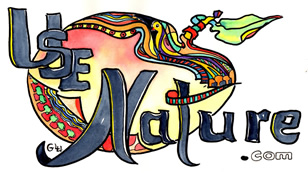useNature.com ... Hypertension - Holistic Health Support
High Blood Pressure
Hypertension - Holistic Health Support
Holistic Natural Health & Lifestyle Information
Article: What is Hypertension?
High Blood Pressure - Hypertension - Holistic Support
Article by ... the editor of Use Nature, Dieter Luske N.D.-D.C.H.-D.M.H.-D.H
Holistic Consultant - Gold Coast - Canungra
High Blood Pressure Supportive Treatment Suggestions
High Blood Pressure or Hypertension can be called a silent epidemic.
Statistics are worrying to say the least:
Hypertension causes major health problems and mortality. - The World Health Organisation reports that it causes 1 in every eight death worldwide. - Roughly 30% in the adult Australian population has hypertension, half of those not treated. - People may not even know they have hypertension. - Hypertension is involved in nearly all stroke cases.
Latest Research determines that a blood pressure less than normal is optimal for preventing any cardiovascular and associated problems.
A normal Blood pressure is considered to be 120 over 80 ...
... but to be considered a preventative for optimal health, *115 over 75 is now desirable. (*some disagreement on that low figure)
A general holistic active preventative hypertension outline is as follow:
(Active prevention actually means, you need to take action)
-
Foremost and nearly always >> lose weight!
To be overweight is another epidemic, and it's certainly not silent, it is very visible.
We will address weight loss in a separate article - see the Weight Loss Guide
-
Increase the amount of water you drink to about 8 -10 glasses a day, and always drink 1 full glass of water before every meal. You will feel slightly full and will eat less.
( Drink filtered water - chlorine may cause scarring of blood vessels - contributing to hypertension)
-
Under-eat - to under-eat means to stop eating before you are full. Under-eating is the only scientific proven method to prolong life. - Eat smaller portions, eat less, have small healthy snacks in between the 3 main meals.
-
Exercise has proven to directly lower blood pressure - but it needs to be done every day. Regular physical exertion lowers the blood pressure. The mechanism which accomplishes this may be improved oxygenation of the kidney, which could be associated with the release of blood pressure lowering prostaglandin's.
Walk, jog, run, bike ride, swim, dance, use the stairs. Start of slow .. check with your Doctor.
Try to start with a minimum of 30 minutes a day of light to moderate exercise.
-
Diet - this is vital, there is a lot of information directly linking specific diets to hypertension.
Stop salt in your food, stay away from salted food altogether, esp. normal table salt.
Adopting a healthy lifestyle diet, will lower your weight as well as your blood pressure ..
Different Diets may be appropriate for different patients depending on associated health problems.
However, it is recognised, that a vegetarian diet is generally beneficial for a blood pressure problem.
A word of warning here, if the vegetarian diet is too high in refined carbohydrates such as refined grain products, the resulting insulin resistance problems, may cause high blood pressure. -
For Diet and nutrition advice, click >> Diet
-
Stop Smoking and Alcohol - an occasional glass is permitted.
-
Start relaxation or meditation - and include yoga exercise into your lifestyle.
Natural Hypertension supplements:
NOTE: Supplements do NOT treat diseases, nor do they claim to be a treatment. They provide additional nutrients or substances to "Support" correcting underlying contributing factors to a disease.
These remedies should not be taken by itself, they are considered an adjunct to your new healthy lifestyle.
(You can't stay on a bad diet, take a supplement and hope you will be better ... it's not working.)
If you cheat, you cheat yourself.
Supplement Menu - in no particular order:
1. Magnesium
Apparently, Magnesium is deficient within the Australian soil, which is not a good start. Drinking rainwater, may be another causative factor for a low magnesium count. - Magnesium is an important muscle relaxant. Knowing that the heart and arteries are basically muscles, stresses the importance of having enough Magnesium in your Diet.
Magnesium relaxes the musculature in the walls of the arteries, permitting the artery to widen and the blood within the artery then exerts less pressure against the wall of the artery (Vasodilatation).
Magnesium Rich Foods:
Green Leafy Vegetables such as spinach, broccoli, and lettuce contain high amounts of magnesium. Beans are good as well, so are bananas, avocados, apricots, and raisins.
Nuts, and specifically walnuts; it is recommended to eat 10 Walnuts per day, and add cashews, almonds, peanuts, brazil nuts, and pine nuts.
Cocoa is high in magnesium, which is a good excuse to eat some chocolate, it has also some important antioxidants. But before you get stuck into it, other ingredients in chocolate maybe harmful for blood pressure. Therefore the only chocolate to eat, is an Organic Dark Chocolate without any artificial colorings or preservatives and a low sugar content... read more - click > Magnesium
Other important minerals are > Calcium and Potassium
Low potassium can result in elevated sodium in cells, because the two balance one another.
2. Garlic ...
And it's active constituent allicin helps in the lowering of blood pressure as well as cholesterol levels.
One fresh clove a day is recommended. It needs to be fresh, best way to take it, is to chew 1 clove before dinner.
Garlic can thin the blood (reduce the ability of blood to clot) similar to aspirin. Garlic may interact with many drugs and supplements such as the prescription "blood-thinners" - consult your Doctor if you are on blood-thinners. - Age Garlic is also considered beneficial.
3. Oat Meal ...
Makes a great breakfast - combined with Coconut OIL
1 ½ cups of oat meal daily have a blood pressure lowering effect as well as reducing bad cholesterol.
4. Cold Water Fish
Omega-3 fatty acids are good in lowering the bad cholesterol (LDL) while maintaining the good cholesterol (HDL). Sources are from tuna, salmon, and mackerel.
In addition or instead of fish you can use fish oil supplements, they contain both DHA (docohexaenoic acid) and EPA (eicosapentaenoic acid), but there is evidence that DHA is the ingredient that lowers high blood pressure, while EPA acts as anti-inflammatory.
5. Chilly
Hot pepper – contains capsaicin oil which stimulates circulation and removes the LDL cholesterol from attaching to the arterial walls.
6. Turmeric
Natural anti-inflammatory - high in anti-oxidants helps to process cholesterol.
7. Organic Celery
Mild natural diuretic, helps against fluid build up.
8. Flaxseed
The oil or meal - good in the lowering of LDL cholesterol and the preservation of HDL cholesterol.
The linolenic acid content of flaxseed, seems to lead to the production of prostaglandins that lower blood pressure.
9. Coconut Oil
Contains MCFA ( Medium Chain fatty Acids) with it's 50% lauric acid content. MCFA help to lower the risk of heart disease, including high cholesterol levels and high blood pressure, it also reduces the incidence of injury in arteries and therefore helps in preventing arteriosclerosis.
Coconut oil does not lead to increase in LDL levels, as previous suggested.
10. Olive Leaf Extract
Mild lowering blood pressure effect, and is often included in a good supplement. Takes 2-3 weeks to take effect.
11. CoQ 10
Essential nutrient and anti-oxidant, increases the energy output by the mitochondria of the cell and lowers blood pressure. It is considered to be an overall protective nutrient for the cardio vascular system.
12. Vitamin D
Lots of newer research has shown the importance of Vit. D. - the sunshine vitamin.
Vitamin D produces its beneficial results in hypertension by slowing down the output of a renin. This decreased production of renin leads to less conversion by renin of angiotensin 1 into angiotensis 2 .
Angiotensin 2 causes constriction of blood vessels leading to hypertension. It also causes thickening of both heart muscle walls and blood vessel walls.
The decrease in renin output produced by Vitamin D slows all these undesirable effects.
The higher an individuals Vitamin D levels are the lower his blood pressure tends to be.
The use of magnesium, CoQ 10 and Vitamin D together with lifestyle changes, diet and specific herbs or food items, should provide effective safe blood pressure control for most people.
Always remember that a sensible amount of sunlight without sun screens or sun glasses is the cheapest most natural way to get your Vitamin D.
13. Hawthorn
The herb is often used by traditional herbal practitioners for high blood pressure and it is considered to be a heart tonic as well.
14. Folic acid
One of the Cardiac Risk factors is an elevated homocysteine level, which is lowered by folic acid.
Folate is a B vitamin necessary for formation of red blood cells.
15. Chromium
Important for blood sugar control, it has a blood pressure lowering effect as well.
By supportive treating "Metabolic Syndrome", it has been observed that chromium supplementation lowered blood pressure. Apparently, chromium supplementation resulted in a reduction of blood vessel constriction, by lowering the hormone "angiotesnion 2".
16. Beetroot
Nitric oxide in beetroot lowers blood pressure
Quick fixes - to lower an elevated blood pressure.
Open constricted bloodvessels by vasodilation.
Relax in a warm bath - this has a vasodilating effect on your blood vessels. ( opens constricted blood vessels)
Increase Nitric Oxide in your blood by breathing in and out through only the left nostril (close the other one and your mouth)
There are specific exercises to support "Vasodilation" of the blood vessels to achieve a blood pressure lowering effect.
Thai Chi recommends an exercise of raising both arms to a horizontal level wile bending the knees, do that 100 times daily.
Other exercises concentrate on releasing Nitric Oxide into the bloodstream for vasodilation. - Interval training works well to do that. A short time of high intensity training 4 hours apart will release Nitric Oxide from the body into the blood stream.
NOTE: Many drugs and over-the-counter substances are known to raise blood pressure. These include steroids, oral contraceptives, NSAIDS (such as ibuprofen and aspirin), appetite suppressants, nasal decongestants, and certain antidepressants. - Evaluate carefully what you are taking.
Please post comments on our Facebook Page
Article supplied by the editor of useNature - Dieter Luske
Related Treatment Modality Practitioners
Please contact me directly for more info or Research Participation: Dieter L. - Editor
* Disclaimer - Any general advice given in any article should not be relied upon and should not be taken as a substitute for visiting a qualified medical Doctor.
 Dieter Lüske - Editor
Dieter Lüske - Editor
N.D.-D.C.H.-D.M.H.-D.H
Buy Now
It happened in the seventies
A Memoir of Love, Colliding Worlds and a House on a Hill
Intriguing story of personal risk-taking, self-discovery and profound change.
Dieter Luske
author . writer . editor
useNature Magazine
© 1998 - 2025 useNature.com: Australia - Dieter Luske - Writer - Creative Lifestyle Portal - Natural Holistic Health - Books & Art -


